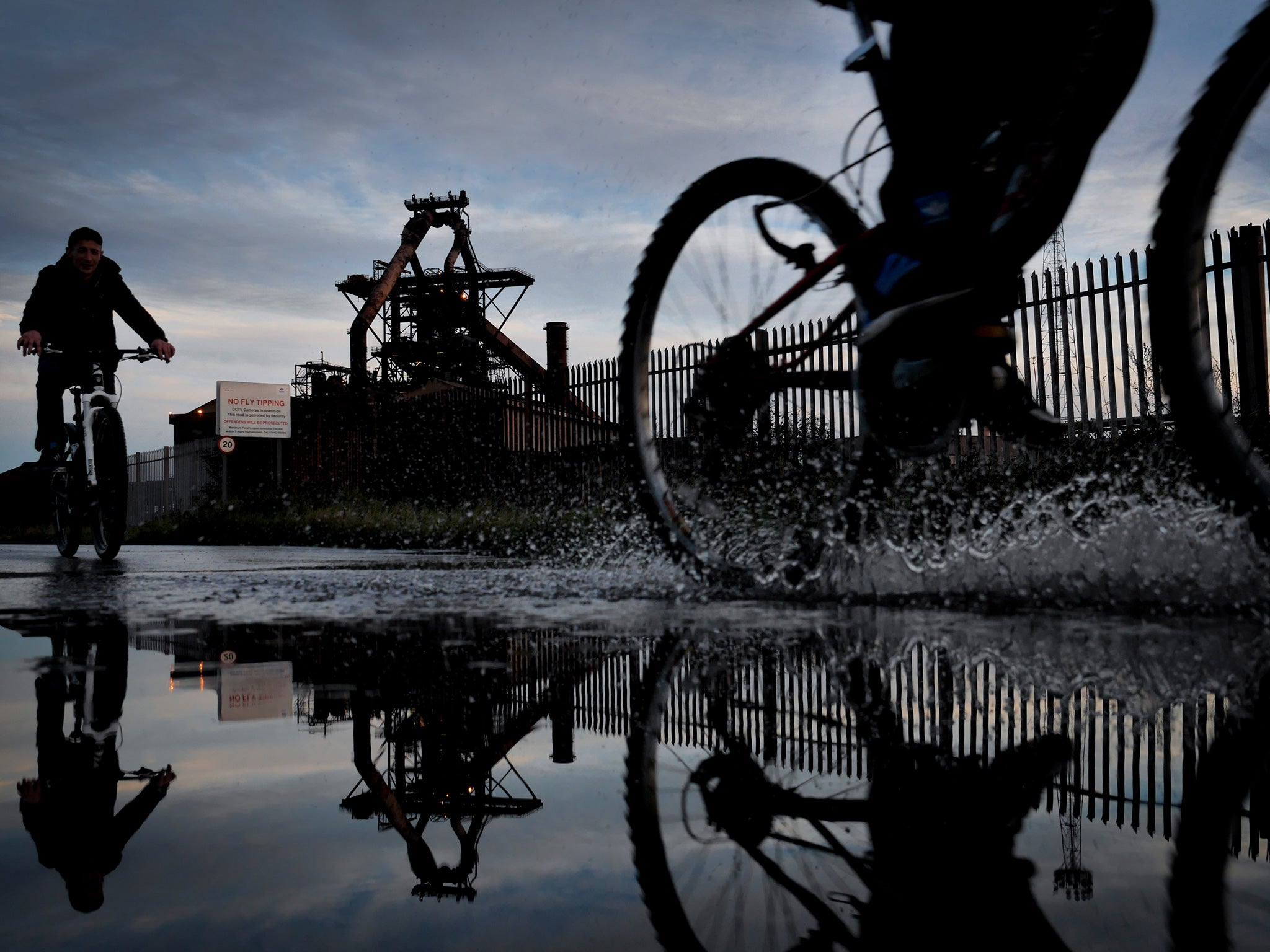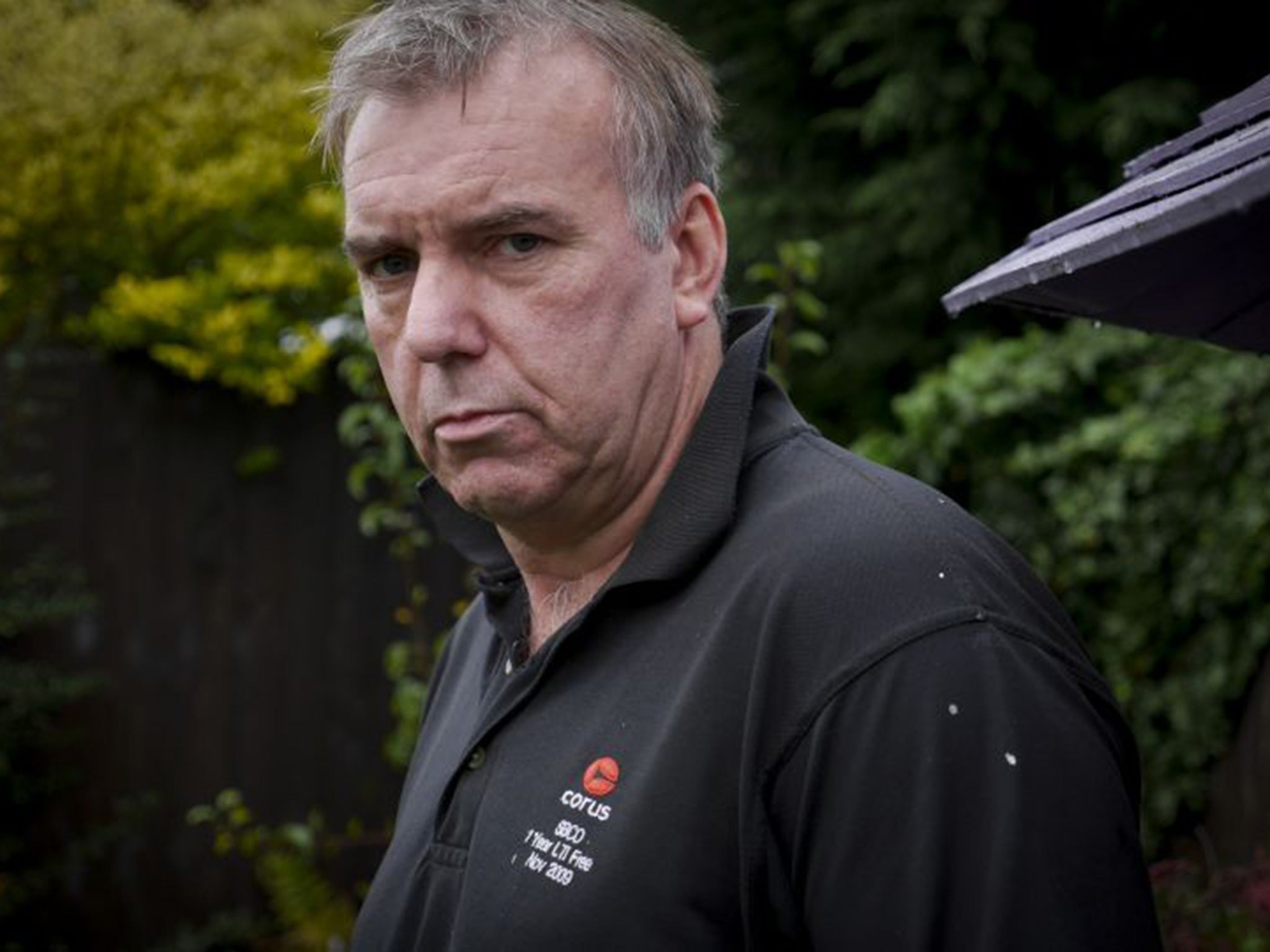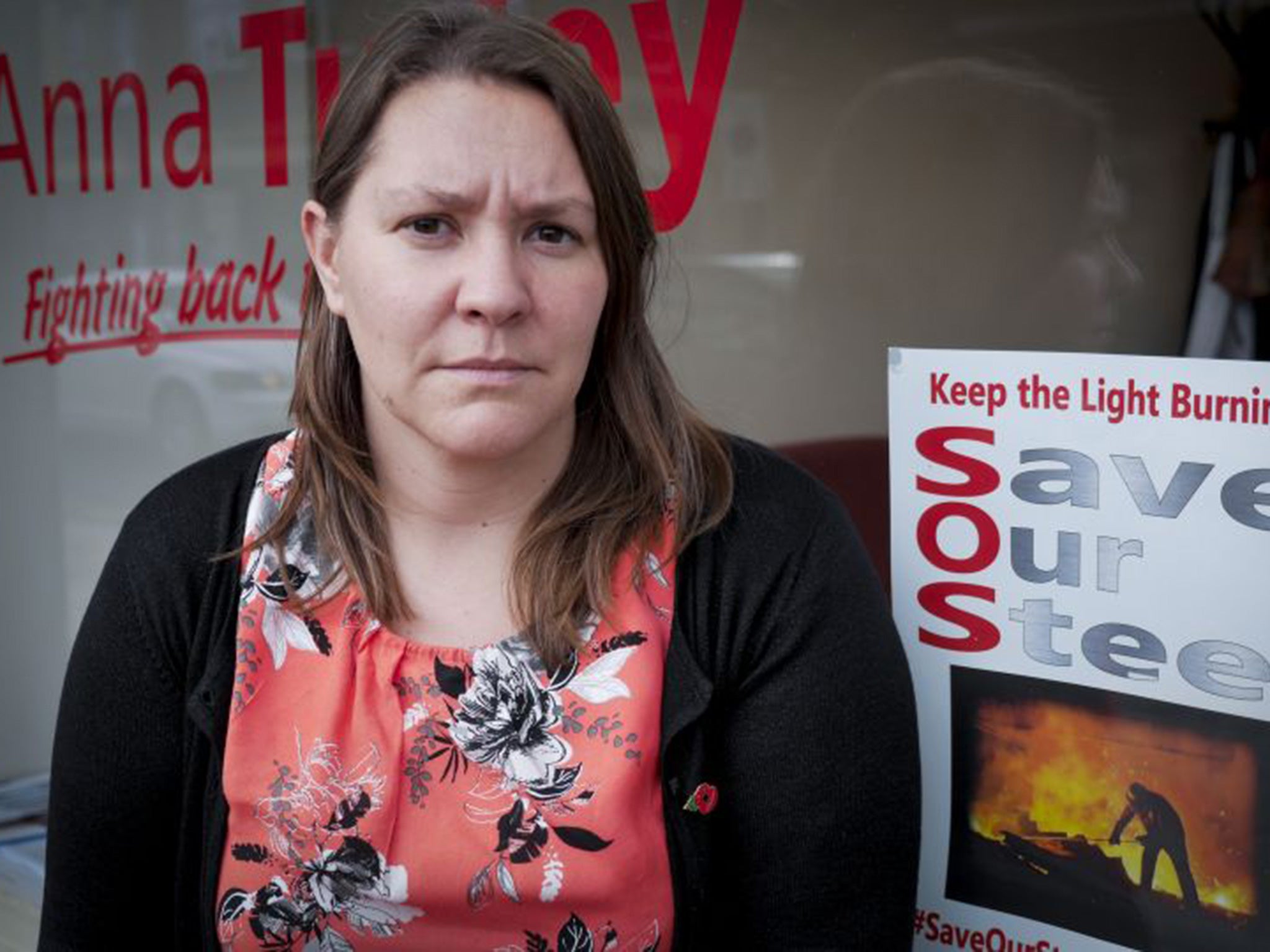Redcar steelworks closure: Thousands prepare for a grim Christmas
For the those who had worked in the town’s main industry, prospects of a decent job are slim

Your support helps us to tell the story
From reproductive rights to climate change to Big Tech, The Independent is on the ground when the story is developing. Whether it's investigating the financials of Elon Musk's pro-Trump PAC or producing our latest documentary, 'The A Word', which shines a light on the American women fighting for reproductive rights, we know how important it is to parse out the facts from the messaging.
At such a critical moment in US history, we need reporters on the ground. Your donation allows us to keep sending journalists to speak to both sides of the story.
The Independent is trusted by Americans across the entire political spectrum. And unlike many other quality news outlets, we choose not to lock Americans out of our reporting and analysis with paywalls. We believe quality journalism should be available to everyone, paid for by those who can afford it.
Your support makes all the difference.Mike Gilbert watched grown men cry as they pushed the final batch of coke through the ovens and saw the flickering flame of Teesside’s 175-year-old steel industry start to die.
Now the grandfather-of-four, like 2,200 other steelworkers in and around the seaside town of Redcar, is desperate to find a new job to support his family and save his home.
“It’s shocking, absolutely shocking,” says Mike, 51, who worked at Redcar’s South Bank coke ovens for more than 31 years. Now they and the rest of the town’s steelworks, which were owned by SSI, have been shut down.
“I only know three lads who have been able to find jobs. There is nothing out there. When I went to the job centre, I told them I will do anything and to just put my name down.

“But what can an ex-coke oven worker do? There is no steel industry, no coal industry, no ship building. It’s all gone and the Government hasn’t done anything for us.”
Many former steelworkers in Redcar have spoken of feeling abandoned by Whitehall during the plant’s closure as they waited for cash from the Government’s promised £80m support fund.
At her constituency office in Milbank Terrace, Redcar’s Labour MP, Anna Turley, was inundated with up to 100 emails a day from worried steelworkers struggling to make ends meet.
She says their biggest concern is that it will take time for them to be able to train for new jobs. One 35-year-old wrote: “I do not want to be in and out of work. I want training that will see me through until I retire, in a job that I can learn to love like I did the steel industry.”
This week, a task force set up to support the workers has secured £7.3m to support apprenticeships. Anna Soubry, the minister for small business, industry and enterprise, said: “We want to see people back in jobs as quickly as possible.”
“People are still in a state of shock and anger,” said Ms Turley, who is disappointed that the money has been so slow to arrive.
“They are trying to pick themselves up as quickly as possible, to support their families and prepare for Christmas.

“A job isn’t just a job. Steelwork was part of their identity; it’s a brotherhood. It’s what they did and what their fathers did.”
In Redcar High Street, around the corner from her constituency office, dozens of “Save Our Steel” posters can be seen in windows. Shopkeepers are already concerned about a decline in trade. The closure of the plant is also costing thousands of jobs in the supply chain.
“It has been quiet,” says Sheralyn Kent, who runs a fruit stall on the market.
“It is definitely affecting trade. It’s a worrying time, but it’s much more worrying for those families.”
John Gibbon, who has worked for 40 years at Goodswen Butcher’s on the High Street, where he started aged 11, says turnover has fallen by 6 per cent.
“We’ve seen that people are already changing their eating habits,” he said. “They are ordering more mince, sausages and chicken. They are being more cautious about what they spend.
“This butcher’s has been here more than a 100 years. It came through wartime rationing and it will survive this, but the plant’s closure will affect so many people.”
Up the road in Sunderland, in the shadow of the Stadium of Light, former steelworker Paul Maven, 35, and his wife Anna, 37, are wondering how they will provide a Christmas for their two daughters.
“We are already eating into our savings,” says Anna, who has been writing a blog about the impact the plant’s closure is having on families.
“We haven’t told the children what’s happening and we’re trying to keep smiling and not let them see that we’re worried. We are just trying to remain positive and hope that a job will come up.
“We have a big family and the girls will get lots of presents, but we will have to cut back this Christmas and they won’t understand why.”
Join our commenting forum
Join thought-provoking conversations, follow other Independent readers and see their replies
Comments